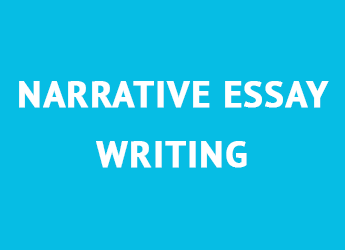When you are first tasked with writing a narrative essay, you can’t help but feel excited. After all, a narrative essay is considered to be one of the easiest and most fulfilling types of written assignments in modern schools. The reason why many students love writing narrative essays is that they turn you into a real storyteller.
The way you tell the story in your essay determines the effect it will have on the reader. And while this task can be very entertaining, it is also often challenging. There are many components required for the success of your narrative essay, including the topic, your writing skills, and your storytelling abilities. Eliminate stress and anxiety from the writing process completely with our helpful tips on crafting a narrative essay.
What Is a Narrative Essay?
While the definition of a narrative essay may differ from school to school, the general purpose of this type of written assignment is to tell a story. Narrative essays are the most personal thing you’ll have to write in your student life because in most cases, they are based on the events and experiences from your own life.
A narrative essay is guaranteed to attract the attention of the readers, where it’s your instructor, classmates, or parents. That is why you need to pay special attention to every aspect of the writing. Here are some helpful guidelines on how to write the most successful narrative essay of your academic career.
Writing a Narrative Essay: Guidelines and Tips
These 12 tips will help you do the best job with your narrative essay:
1. Choose the right topic. No matter which topic you ultimately go for, it has to be closely connected to your personal views and experiences. Moreover, it has to be something you are willing and ready to share with the audience.
2. Create a draft. Even the most famous writers rarely release works they wrote on the first try. In order to deliver the most convincing piece of writing, you first need to write a draft. Creating an outline for your essay can also be very effective for properly structuring your thoughts.
3. Use storyline elements. A narrative essay is a literary work, which means you need to use the same techniques and elements as professional writers. Research setting, plot, character, and other elements that make a great written work.
4. Choose your point of view. In order to better understand the events in the essay, as well as your own behavior, the readers need to know your point of view in the story. Explain your position early on to avoid any misunderstanding.
5. Support your arguments. As any academic paper, a narrative essay is useless if your arguments are not backed up by any facts or evidence. Even when you are offering your own thoughts, you still need to support them with undeniable facts.
6. Make every word count. Even though readers will look forward to reading your essay, they may still be frustrated to find out that it’s too long and wordy. Make sure you include only the most relevant events and points that have plot significance into your narrative essay.
7. Use clear wording. Using complicated words and phrases in your narrative essays may seem impressive to you, but you need to understand that it can harm the readability of your text. If you want your readers to be on the same page as you, make sure to use words that are clearly understandable.
8. Use a chronological order. While there are many approaches to the timeline in literature, the best way to organize the events in your narrative essay is through chronological order. That way, you will help the reader look at the story through your point of view.
9. Read as many examples as possible. Writing a narrative essay seems like a very straightforward task at first, but it requires a deep knowledge of writing technique and finesse. Read some examples of narrative essays to see how to write this type of assignment properly.
10. Follow the instructions. When you are tasked with writing a narrative essay, you will also be given a list of requirements and standards to follow in your writing process. If you want to get the best grade for your work, follow these instructions down to a core.
11. Highlight key moments. No one likes reading a monotonous work even when it’s beautifully written and has an interesting plot. Highlighting the most crucial moments in the essay allows you to point the attention of the readers the right way.
12. Do a revision. When editing your finished narrative essay, pay attention not only to spelling and grammar mistakes, but also any plot inconsistencies, too long sentences, and logical mistakes. You can also check your paper for plagiarism to ensure it is 100% original.
When writing a narrative essay, you can imagine yourself being a renowned novel writer who is ready to impress the readers with another brilliantly written piece. However, in order for your paper to hit the right marks, it needs to be written according to the universally accepted writing standards. Be truthful, be consistent, be passionate, and your narrative essay is bound to be a success.



